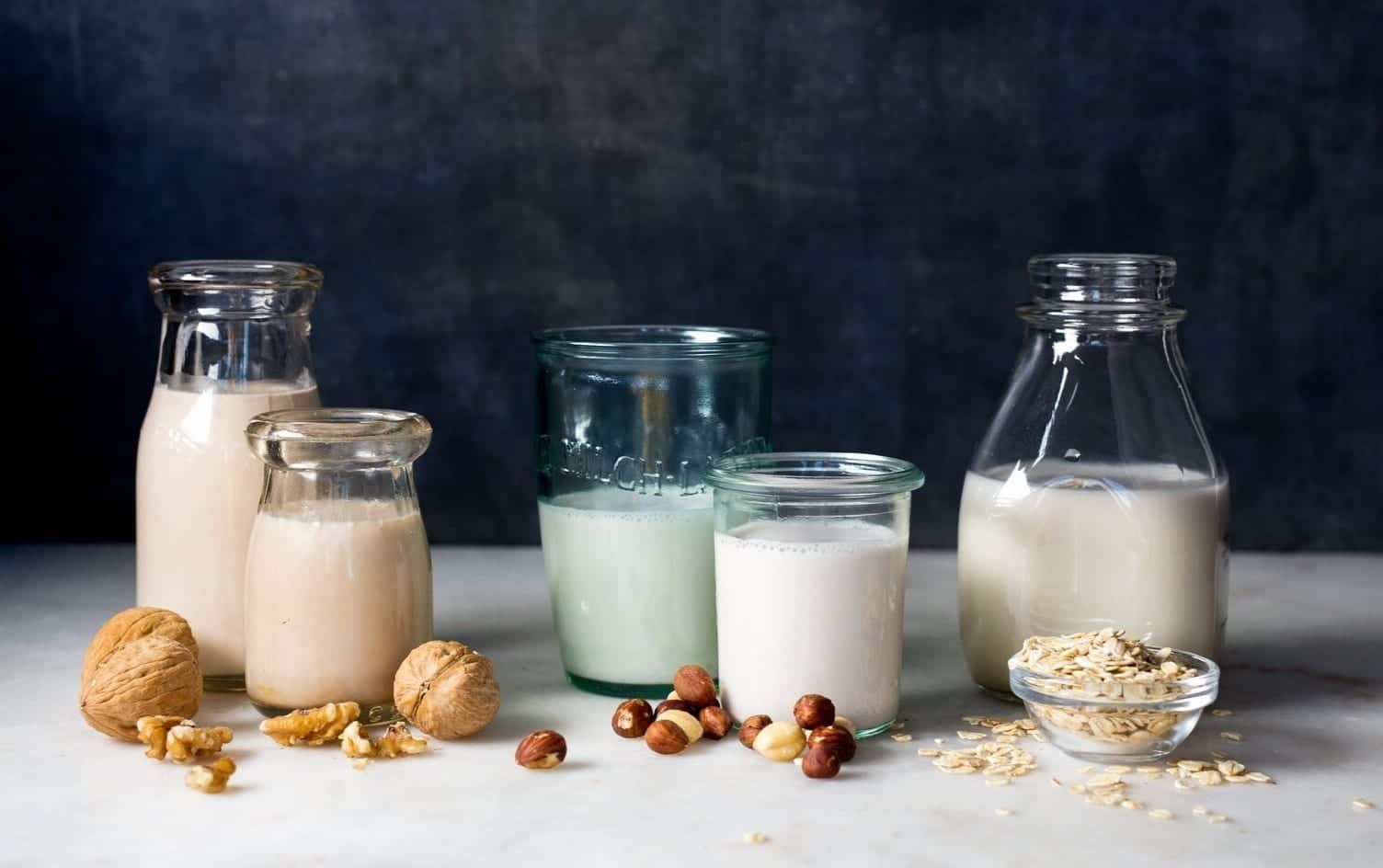You’ve likely noticed there are more dairy alternatives in grocery stores and it’s a trend that doesn’t seem to be slowing down. In fact, plant-based milks now make up 15% of the milk market. Beyond that, you can also find yogurt, cheese, ice cream, coffee creamer and more made from almonds, cashews, coconuts, oats and other non-dairy ingredients.
It’s great to have options, but “you have to know your reason for choosing these,” says Keri Gans, RD, author of “The Small Change Diet.” “If you don’t have a dairy sensitivity, these are alternatives to bring into the mix to further vary your diet.” The same goes if you can’t tolerate dairy or don’t wish to consume it.
Whatever your reason, it’s important to remember that just because something is plant-based, doesn’t necessarily mean it’s healthier. To make things easier, Gans shares what to look for (and what to avoid) when shopping for these foods, along with some of her favorite picks.
WHAT TO PAY ATTENTION TO
As with most packaged foods, it’s important to check the nutrition facts and ingredients of alternative dairy products. Be mindful of three things:
Added Sugars
“The most important thing is added sugars,” says Gans. For example, if something contains 2 grams of added sugars per serving, that might not be terrible. But it depends on your overall diet. “If you’re getting a lot of added sugars elsewhere, consider buying unsweetened varieties,” suggests Gans.
Fortification
When it comes to alternative milks, check for added vitamins and minerals, particularly calcium and vitamin D. These “milks” don’t naturally have the nine essential nutrients cow’s milk does, explains Gans, so you want them to be fortified.
Coconut Consumption
Coconut is a popular base for vegan ‘dairy’ products, and it’s also naturally high in saturated fat. Although the verdict is still out on whether these fats are harmful or OK, “I’d lean toward something we know for sure is good for our hearts, like monounsaturated fats,” says Gans. If you don’t consume much saturated fat in your diet, some coconut is fine, but if you typically eat a good amount of saturated fat from other sources, it’s probably best to skip coconut-based dairy alternatives, she says.
WHAT YOU DON’T NEED TO WORRY ABOUT
As with all things food, there are ingredients some people make seem almost lethal. However, you don’t need to be concerned if your alt-dairy product contains any of these:
Added Gums
Many people express concern over added gums, such as guar gum and acacia gum, which are used to thicken products and add texture. Some people experience gastrointestinal problems when consuming these, but the small amounts added to food is considered safe.
Carrageenan
This red seaweed extract also helps to emulsify and thicken foods. Some believe consuming carrageenan can cause inflammation or gastrointestinal problems, but almost all of that research is on animals. The FDA and EFSA both consider this ingredient to be safe in the amounts added to foods, however, many companies have removed carrageenan from products, in part because of consumer uproar.
PLANT-BASED DAIRY ALTERNATIVES TO TRY
As you can see, what is “best” in alternative dairy is not clear cut. Everything has pros and cons when you look at macronutrients and calories. Moreover, our taste buds differ — some people prefer the taste and texture of oat-based products while others love almond-based products. With all of this in mind, here are a few to consider trying:
MILK
Almond Breeze Unsweetened Almond Cashew Blend
Cashew milk is one of the creamiest milk alternatives and it’s naturally sweet, so you don’t need added sugars. Almond Breeze also adds calcium and vitamins A, D and E.
Oatly Oat Milk Low-Fat
This nut-free option is just oats, water, oil (to make it creamy) and added vitamins and minerals, and it contains the same amount of calories per cup as skim milk.
CHEESE
Miyoko’s Vegan Cheese Wheel
With flavors such as garlic herb, double cream chive and sundried tomato garlic, these delicious cashew-based cheeses are super soft and great for spreading on crackers or toast. All of the ingredients are easy to recognize.
Treeline Aged Nut Cheese
A lot of plant-based cheese slices and shreds don’t have the greatest ingredients or nutrients. But this hard-ish cheese can be grated or sliced and contains things you’ll recognize. It’s made from cashews fermented with L. Acidophilus (a probiotic) to give it a nice tang. Both the original and cracked pepper flavors are delicious.
ICE CREAM
Coconut Bliss
The namesake base of this ice cream makes it so smooth and silky, it could fool dairy lovers. The company also keeps the ingredient lists fairly short, although naturally more complex flavors like chocolate chip cookie dough have longer lists than, say, cold brew coffee. Plus, for ice cream, the added sugars are fairly low.
So Delicious Dairy-Free Cashew Milk Non-Dairy Frozen Dessert
Cashew milk makes this pick deliciously rich and creamy when you want to indulge. Just make sure to stick to the portion size since it can be easy to overeat.
CREAMERS
Laird Superfood Unsweetened Superfood Creamer
Mix a tablespoon of this powder made from coconut milk, coconut oil and Aquamin (a marine algae source of calcium), into your morning coffee for a smooth, sweet hint of coconut without any added sugar.
Nutpods Unsweetened + Dairy-Free Creamer
Choose from original, French vanilla or hazelnut to add that taste of milk without any actual milk. Nutpods uses coconut cream and almonds as its base.
YOGURT
Lavva Original
Although this yogurt has no added sugar, it gets great tang thanks to lime juice. It’s made from a blend of coconut water, coconut cream, plantains and pili nuts.
Kite Hill Vanilla Unsweetened Greek Yogurt
With no added sugars, 11 grams of protein and 160 calories per container plus probiotics, this almond-based yogurt is rich, smooth and satisfying.




